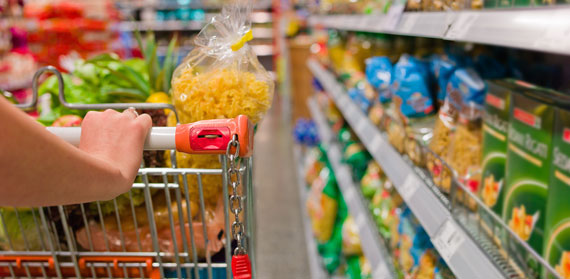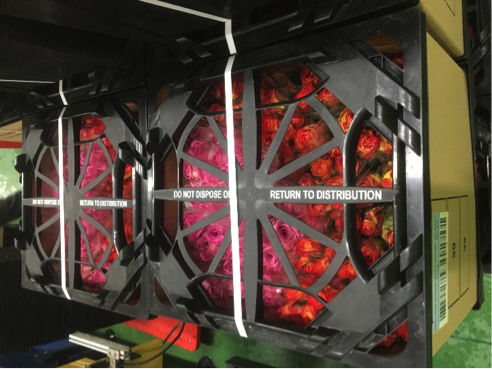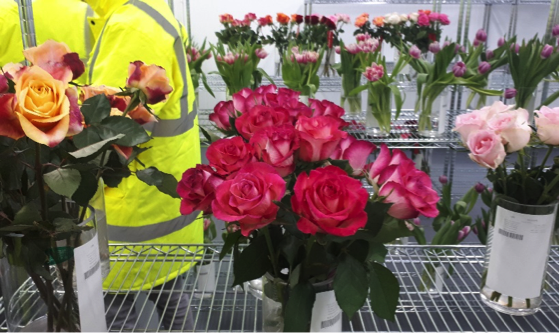Guest post by Jordon Lazell and Lisa Ruetgers, Centre for Business in Society
The Munoz Group import, pack and distribute flowers, grapes and citrus for several UK retailers. Their business has grown rapidly with innovative sustainability practices being critical to their competitive advantage. By placing sustainability at the core of their operations, they are staying in step with their key clients such as Marks and Spencer whose commitment to more sustainable futures is evident in the implementation of their Plan A strategy (Marks and Spencer 2017).
Managing waste within their supply chains has been a significant challenge which Munoz have risen to using a range of technologically driven strategies.
Sustainable, lean and optimised processes have been adopted for growing, transporting, storing and distributing products. Seeds, for example, are modified to require less water and pesticides. Transportation is reduced as much as possible via efficient warehouse location, utilising CFC-free cooling to enhance product life. Across these processes waste is minimised by using technology to monitor the temperature of produce as it is moved around the logistics network. Such processes require investment and dedication from both Munoz and their suppliers, with the company arguing that working with fewer, larger farms ensures these practices are implemented, guaranteeing that sustainability measures are followed.
Crates of bouquets packed for distribution to stores. The crates are returned to Munoz and re-used to reduce waste.
The flower side of the business (which operates under the business name of MM Flowers) has adopted a range of good practices to reduce waste. Considering that the life span of a flower after harvesting can be just 10 days, competent logistics are essential to ensure this demand is met. Efficient cooling systems ensure that consumers benefit from at least 5 days of vase life. Just a short period of exposure to high temperatures on the journey from field to supermarket can reduce vase life by a day or more. Tracked temperature controlled technologies ensure that flowers are kept at a steady 2 degrees post-harvest. This is all the more complex given that flowers are grown and transported from Kenya, Ethiopia and Columbia, amongst other places, to ensure that all flower types are available all year round.
Research is constantly ongoing at the firm’s in-house degradation lab, which monitors real world conditions to understand how flowers perform once they have been bought. Constant evaluation is undertaken to ensure that all product lines perform consistently once they enter the consumer’s home. It is vital that retailers maintain customer satisfaction by offering high quality products which retain their freshness and beauty.
Bouquets undergoing vase-life testing in Munoz’s degradation laboratory.
Retailers such as Marks and Spencer want to see waste minimised in their supply chains and expect producers overseas to demonstrate that they are tackling the issue. For example, flowers not reaching retailer quality standards are sold into local markets rather than going to waste. MM’s flower assembly line generates relatively little waste during re-packaging with only a short amount of the stalk being cut-off during the creation of bouquets. This waste is then composted. Flowers that have been damaged in some way during transport or handling are sold at the end of each week to MM’s staff.
Grapes too are sourced from countries with different growing seasons such as Spain, South Africa and Brazil, thus ensuring that supply can be guaranteed across the year. Grapes are sorted into containers according to individual retailer guidelines at packing station within Munoz’s facility. Grapes discarded during this process are then composted. Perhaps steps could be taken to better align this process with the food waste hierarchy (Papargyropoulou et al., 2014) by preventing waste in the first place by either changing assembly line practices or organising the re-distribution of this surplus to ensure it is still consumed. Ultimately the goal of any food grown for humans is to be eaten and any other outcome can be viewed as inefficient.
On a final note, with the ever increasing environmental pressures of the 21st century, industries like the global cut flower and fresh fruit sectors need to be aligned with state of the art sustainability practices. Otherwise their continued existence could be called into question. Consumers in developed countries have high expectations in terms of product availability. But global sourcing has impacts upon water, soil and energy sources as crops are grown, transported, processed and packaged. The impacts of climate change are becoming increasingly obvious: how much longer can global sourcing be considered a sustainable business practice?
What will the future hold? Consumers have a big role to play – both in terms of their management of waste in the home and perhaps more importantly in relation to the purchasing choices they make. Will demand for constant year-round supplies of fresh produce be challenged by counter-trends for local, seasonal commodities?
This blog is part of a short series by members of the Sustainable Production and Consumption Cluster in the Centre for Business in Society. These Blogs were inspired by a visit to the Munoz facility near Huntingdon, UK. Munoz supply flowers, grapes, citrus, ice cream and juices into a range of UK retailers. Thanks are due to the Munoz team for the insights they provided into the management of retailers’ fresh produce supply chains.
References
Marks and Spencer Group Ltd (2017) Plan A 2025 Commitments. [online] Available from < https://corporate.marksandspencer.com/documents/plan-a/plan-a-2025-commitments.pdf>
Papargyropoulou, E., Lozano, R., Steinberger, J.K., Wright, N. and Ujang, Z.B. (2014) ‘The food waste hierarchy as a framework for the management of food surplus and food waste’, Journal of Cleaner Production, 76, pp. 106–115. doi: 10.1016/j.jclepro.2014.04.020.
Previous blog in this series:
- David Bek, Stella Despoudi and Nora Lanari 2017 ‘Less is More’ in retailer supply chains: what are the impacts on sustainability?
Future blogs in this series (Coming early 2018):
- Stella Despoudi, Nora Lanari and David Bek 2018 ‘Can the new era of retailer-led certification schemes shift the sustainability dial?’
- Nandu Devi and Stella Despoudi 2018 ‘Keeping it Lean: efficient supply chain management’






Comments are disabled